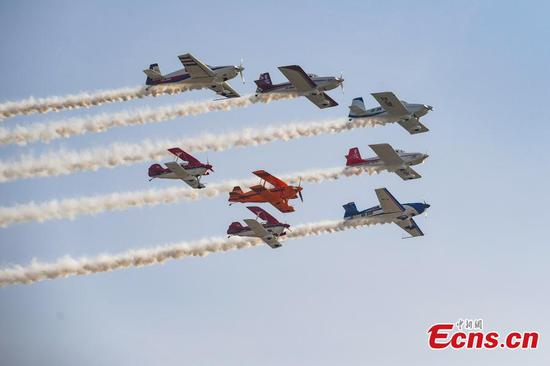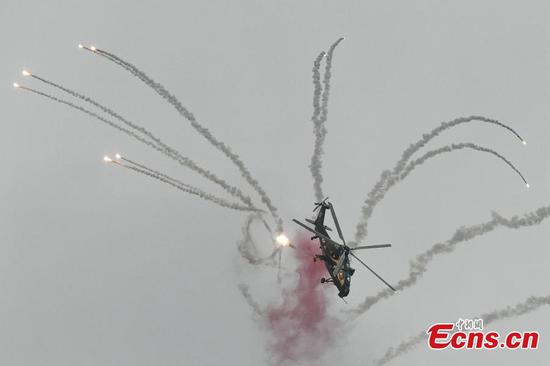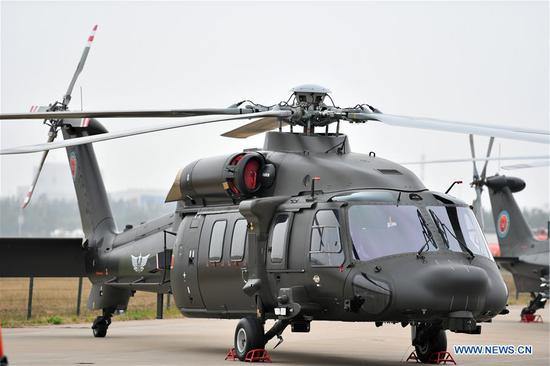
The Super Great White Shark attack helicopter, which looks like a flying saucer, is on display at the 5th China Helicopter Exposition in Tianjin on October 10, 2019. (Photo: Liu Xuanzun/GT)
China has showcased an attack helicopter that looks just like a flying saucer. Chinese military experts said on Friday that though the aircraft is highly experimental and may not be put into practical use anytime soon, it is beneficial to China's technology development for future helicopters.
Dubbed the Super Great White Shark, the sci-fi-like aircraft is on display at the 5th China Helicopter Exposition in Tianjin, which runs from Thursday to Sunday.
The 7.6-meter-long, 2.85-meter-wide helicopter features a blended wing body design, which makes it seem as though the aircraft itself is a wide ring with its cockpit fixed in the center.
According to the information board at the exposition, inside the ring there is a coaxial rotor system with a diameter of 4.9 meters, which will likely provide vertical lift. On two opposite sides of the ring, both parallel to the direction the cockpit is facing, there are two turbojet engines that could provide huge horizontal thrust for high speed movement.
Two pilots can fit in the cockpit, and can steer the direction of the aircraft by controlling a set of rudders located under the rotor system. The rudders could also work with the rotor system to provide a small horizontal thrust for low speed movement.
The helicopter has a maximum takeoff weight of 6,000 kilograms, a top speed of 650 kilometers per hour, a ceiling of 6,000 meters and a climb rate of 16.5 meters per second, according to the information board, which also said that its fuselage is coated with stealth materials.
The Super Great White Shark is a high-speed helicopter designed for future digitalized warfare, according to the board.
Attracted by the futuristic design of the aircraft, Chinese military observers pointed out that the aircraft's high-speed and stealth capabilities could give the weapon an edge on the battlefield.
Others questioned the helicopter, saying that it could be unstable and might not be able to fly safely. They noted that foreign countries including the US had made experiments with similar ideas in the past which had failed to be put into practice.
The board did not reveal whether the helicopter on display is a model or a genuine prototype, nor did it say whether or not it has made a test flight.
"Whether or not this particular helicopter can become practical, such explorations are beneficial to China's technology development for future helicopters," an anonymous military expert told the Global Times on Friday.
High speed, intelligence, stealth and low noise are four technological directions that future helicopters are headed toward, another anonymous expert told the Global Times at the China Helicopter Exposition.
In the meantime, helicopters must become more reliable and easier to maintain, he said.


















































